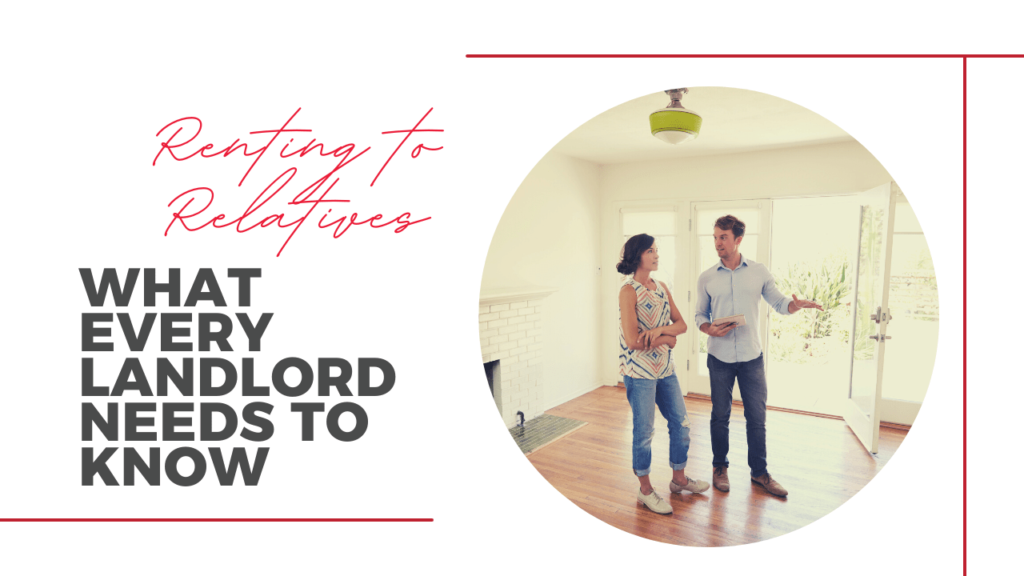
If you haven’t been able to find tenants for your Santa Rosa property, you might be inclined towards renting it to your relatives or friends. Even when you mean well, we recommend you weigh all the factors that may be involved in renting to your family member. It’ll educate you as a landlord and help you make the best choice for your rental unit.
Pros Of Renting Your Santa Rosa Property To Relatives
Like everything else, renting to relatives has its own merits and drawbacks. Here are a few notable pros of letting your relatives move in.
-
The Feel-Good Factor:
It feels nice to help a close family member like your parents, siblings, uncles, or in-laws and simultaneously make money.
-
A Shorter Screening Process:
You already know many things about your family, like, if they have any pets, where they work, how many occupants are moving in, or their criminal background. Hence, the screening process takes less time.
-
Save The Costs Of Advertising:
If your relatives show interest in your property, you won’t have to invest massive amounts in advertising the unit through various platforms.
-
Responsible Tenants:
Since the tenants are your family members, they want to maintain a positive relationship with you. Hence, they tend to use the property responsibly and sincerely carry out maintenance tasks.
Having said that, there are also some downsides to signing a lease with your family members. Here are a few cons that you need to know.
Cons of Renting Your Santa Rosa Property to Relatives
-
They Could Expect Preferential Treatment:
Since they are family, they might expect to live in your property for a lower rent or no security deposit.
-
They Can Take You for Granted:
They might overlook some terms on the lease as they are your relatives. For instance, they might ignore the guest policy or pay late rent without paying the late fees.
-
Business Impacts Relationship:
You might have to discuss some unpleasant things with your family when they are your tenants, such as your expectations regarding lease compliance or any neighbor complaints. The chances of relationships getting spoilt are high in such instances.
What Else Do You Need To Know While Renting To Relatives?
There are many crucial aspects that you must consider before renting your home to relatives. Let’s take a closer look at a few of them.
Is It Legal To Rent A Santa Rosa House To Your Relative?
Yes, it is legal to rent a house to your relative, but the rules for renting to a family member are different in the United States. Don’t be under the impression that you can buy an investment property avail of the tax deductibles while allowing your family to use the home at a lower rental price.
Consider The Tax Rules When Renting To Relatives
If you don’t study the tax rules when renting to relatives, you might have to bear with multiplied taxes as, on the one hand, your rental deductions are disqualified, whereas, on the other hand, the rental income is taxed. To know if you are eligible for tax deductibles, you must understand how your rental property is distinguished under Internal Revenue Service (IRS), Section 280A. Under this section, your property can be qualified as a rental property, a vacation home, or a personal residence.
-
Rental Property
If you use your property for personal purposes only for about 14 days, or 10% of the number of tax days a year, and rent it out for the rest of the year at a fair rental price, it is considered a rental property. You can qualify for tax deductibles like maintenance, repairs, renovation costs, and mortgage interest when you run a fair rental business.
-
Vacation Home
Mixed-use properties like vacation homes can be used by the landlords for over 14 days or 10% of the days of the tax year and rented out for the rest of the year. Since you use such properties for personal purposes, there are limited useful tax breaks for them. The number of tax deductions will depend on the number of days you use the property as to the number of days the tenants occupy it.
-
Personal Residence
Your property can be considered as a personal residence instead of a rental investment in two cases:
- When you rent your property to a close relative for a rental price that is less than a fair market rental value,
- When it is rented for less than 14 days or 10% of the days of the tax year.
In such instances, you cannot qualify for any rental tax deductibles like loss of rental income or other tenant-caused expenses.
Understanding The ‘Personal Use’ Implications
When you rent out to a family member, your rental is most likely considered a personal residence by the Internal Revenue Service (IRS). To avoid falling into this ‘personal use’ trap, you must set a fair rental price that you would typically set if the tenant were not your relative. Also, keep the records of your fair rental analysis, like printed copies of property listings or flyers that you find in your mailbox. However, the safest way is to get a free rental analysis from a trusted company that offers digital data and a piece of evidence.
Determining The Rent Price When Renting To A Family Member
Renting to a family member is not always a bad idea. It can be beneficial as your unit will be in safe hands, provided that you use the right strategy. When you set a fair rental price, your property will qualify as a rental unit, which can be a win-win situation for you. The IRS permits landlords to provide proper discounts to good tenants. Approximately 8-10% of the rental discount is acceptable by the IRS terms.
Hence, if you find yourself in a catch-22 situation, where you wish to rent the unit to your loved ones at lower rental prices but can’t do so for tax purposes, offer them acceptable fair discounts. So, if the rent of your home is $1,500, you can offer it to them for up to $1,350.
Screening The Family Members
Don’t miss out on any screening steps just because they are your relatives. Of course, you won’t have to ask some basic introductory pre-screening questions like the number of occupants or if they have pets. However, it is best if you still take care of all the checks like rental history, income stability, past evictions, or criminal background checks. If you consider your relatives over other more qualified applicants for preferential reasons, it might be considered as an offense by the Fair Housing Laws.
Do You Need A Rental Agreement When Leasing Your Santa Rosa Rental To Relatives?
In California, you can rent out your property to your relatives without a lease agreement. Still, we highly recommend you create a detailed agreement to avoid unwanted fights, unforeseen property damages, neglected maintenance, or loss of rental income.
Your rental investment is a business, and you must create a lease agreement that defines essential information like:
- Landlord’s and tenant’s name and contact details,
- The property details like the number of rooms, appliances,
- The rent price, due date, and the security deposit clause,
- Maintenance and cleanliness responsibilities,
- Important disclosures
- Early termination clause.
Can You Evict Your Relatives Without A Rental Agreement In California?
As disheartening as it could be for you to evict a family member, you might have to do it if they are bad tenants. You must keep a professional attitude at tough times and handle your relatives like any other tenant. Typically, it gets easier to evict tenants when there is a rental agreement, but you can legally evict the tenants even when there is no rental agreement in California.
Remember, the eviction process is the same for all the tenants, irrespective of your familial connection with them. And, you have the right to evict tenants for reasons like,
-
Non-Payment Of Rent
If they fail to pay rent, you are expected to send them a 3-day rent due notice. This notice declares that they can pay rent in three days. Otherwise, you will start the eviction process. Later, you can send them a pay-or-quit notice. First, however, make sure that you follow the legitimate eviction process to avoid any legal hassles.
-
Illegal Activities In The Property
If you find any of your tenants doing illegal activities in the property, like selling drugs illegally, you can evict them. However, you must send them a three-day incurable notice to vacate the property.
-
Failure To Move
If your family members refuse to move out after sending them the needful notices like the termination notice sent 30-60 days prior to move-out, or the pay-or-quit notice, you can initiate an unlawful detainer action.
It can be difficult to sustain a professional attitude when your tenants are your family. Hence, we recommend hiring an expert like a property manager, who will handle your relatives well. Besides, you won’t have to convey any bad news to your relatives when property managers can do it for you.
 Work with the most trusted company in Santa Rosa, Redwood Residential Property Management. We have helped several landlords make fair decisions when renting out to their relatives. We aim to offer you consistent cash flow and do a successful rental business, regardless of whether your tenants are your family members.
Work with the most trusted company in Santa Rosa, Redwood Residential Property Management. We have helped several landlords make fair decisions when renting out to their relatives. We aim to offer you consistent cash flow and do a successful rental business, regardless of whether your tenants are your family members.
For more information, contact us at Redwood Residential Property Management.




 Graduate of Empire Business School, Santa Rosa in 1998 with an AA degree in Office Administration. Lorena has over 30 years of experience in office administration. From the California State Legislature to North Bay Realtors Association and most recently with Sue Carrell & Associates.
Graduate of Empire Business School, Santa Rosa in 1998 with an AA degree in Office Administration. Lorena has over 30 years of experience in office administration. From the California State Legislature to North Bay Realtors Association and most recently with Sue Carrell & Associates.